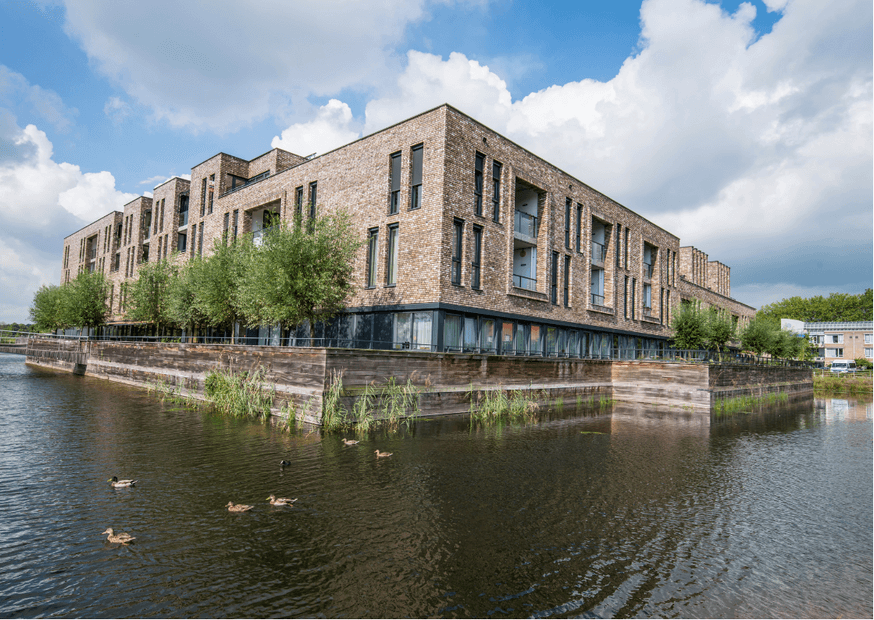Any site that you’re about to develop on will almost certainly need an ecological survey. The ecology survey is designed to highlight the level of impact projects are going to have on the biodiversity of the site they are situated on.
Developers need to be made aware of any ecological issues or constraints during the pre start phase of the project and will have to put measures in place to minimise impact on the natural environment.
The ecology survey process will begin long before planning permission is granted. This is simply due to the fact that if evidence of impact is found, a BAP (biodiversity action plan) will be drawn up. The BAP will be added to the proposed planning permission to prove that your project is taking appropriate action to protect the environment and the species living within it.
Different stages of the ecological survey
The different stages of the survey will take place before, during and after your project to monitor what action needs to be done and if it is in fact being carried out effectively.
You’ll want to align your project with a trusted and experienced surveyor from the get-go to lower any contingency spends on biodiversity fixes. Midland Survey will guide you through your survey from start to finish with clarity and precision. Get in touch for a quote today.
Starting with the preliminary ecological appraisal
The first survey carried out is called the Preliminary Ecological Appraisal (PEA). It can also be known as Phase 1 Habitat Survey. This is a ‘rapid survey, an initial desktop survey as well as a walkover survey.
The survey is designed to pinpoint any ecological constraints at the start of the project. As well as identifying the negative impact of the project, the survey is used to identify new opportunities for wildlife and habitats on the site.

What species does the ecology survey take into consideration?
Flora and fauna in general but more specifically;
- Bats
- Badgers
- Birds
- Otters
- Bees
- Trees
- Shrubs
- Flowers
- Newts
- Deer
- Freshwater fish
Bearing in mind the results of your survey will prioritise the most endangered species to be protected and restored in your project’s BAP first. You can see the full list of protected and searched for species here.
Next is the ecological impact assessment
This assessment also known as the EcIA is the second stage of the ecology survey. In this detailed report, the surveyor is able to identify the potential impact of the project on species habitat based on the data findings from the preliminary appraisal. The ecology report will be presented alongside the planning permission when it is time to submit.
With this in mind, you can see why it is essential to have a comprehensive report drawn up to aid your success with planning permission.
Types of project that require an ecological survey
Here are some of the types of projects that would require a thorough ecological survey.
- A small/domestic residential domestic
- A new build or refurb project
- A commercial site
- An addition to an existing development

What happens if you don’t carry out ecological surveys?
Legal proceedings
It is punishable by law if you do not carry out an ecological survey on your project. You must show willingness to protect and restore the habitats your project imposes a threat to.
Costly setbacks during a project build
By choosing a highly experienced surveyor you safeguard your project against any major setbacks in the planning process. Working with an expert service like Midland Survey will ensure your time frames are kept from the outset.
Irreversible damage to an existing ecosystem
Habitats and species could be further threatened and endangered without the precision of the ecological survey. Furthermore, your stakeholders and investor reputation stand to take a hit if this survey is overlooked which will affect future projects and your reputation in the industry.
BREEAM assessments
Building research establishment environmental assessment method assessments require an ecologist to produce a calculation of the change in the ecological value of a site or project. It also determines how to enhance the site’s value. This is incredibly attractive to investors and stakeholders alike.
Government’s biodiversity bill
Under the Environment Bill the biodiversity value of a development must exceed the pre-development biodiversity value of the onsite habitat by at least 10%. Whether you’re looking at a project pre start or pre completion, the emphasis on boosting the biodiversity of the project is imperative.
Get in touch with our highly skilled team at Midland Survey and explore our services in ecological surveys. We offer a variety of ecological surveys, designed to accurately identify the species that call your site home. Contact us for a quick quote today.